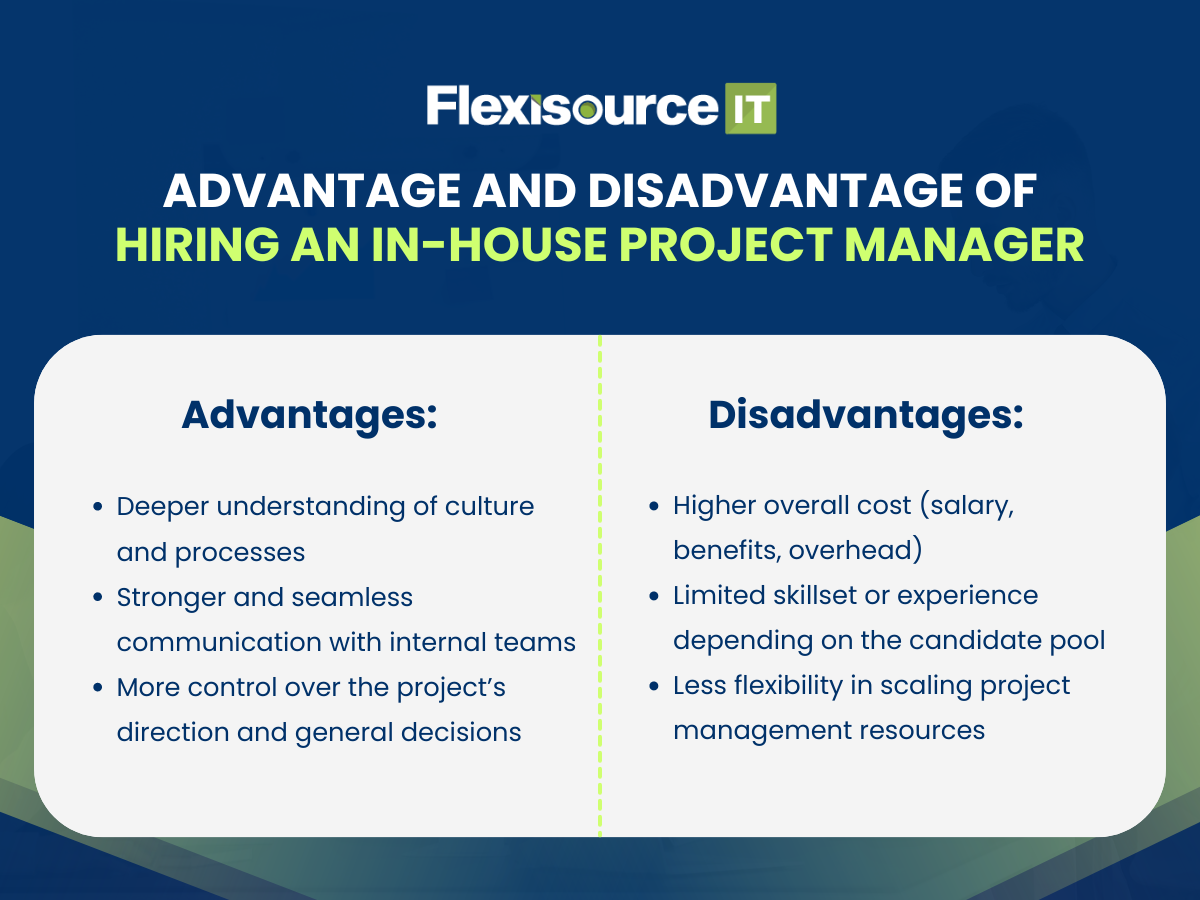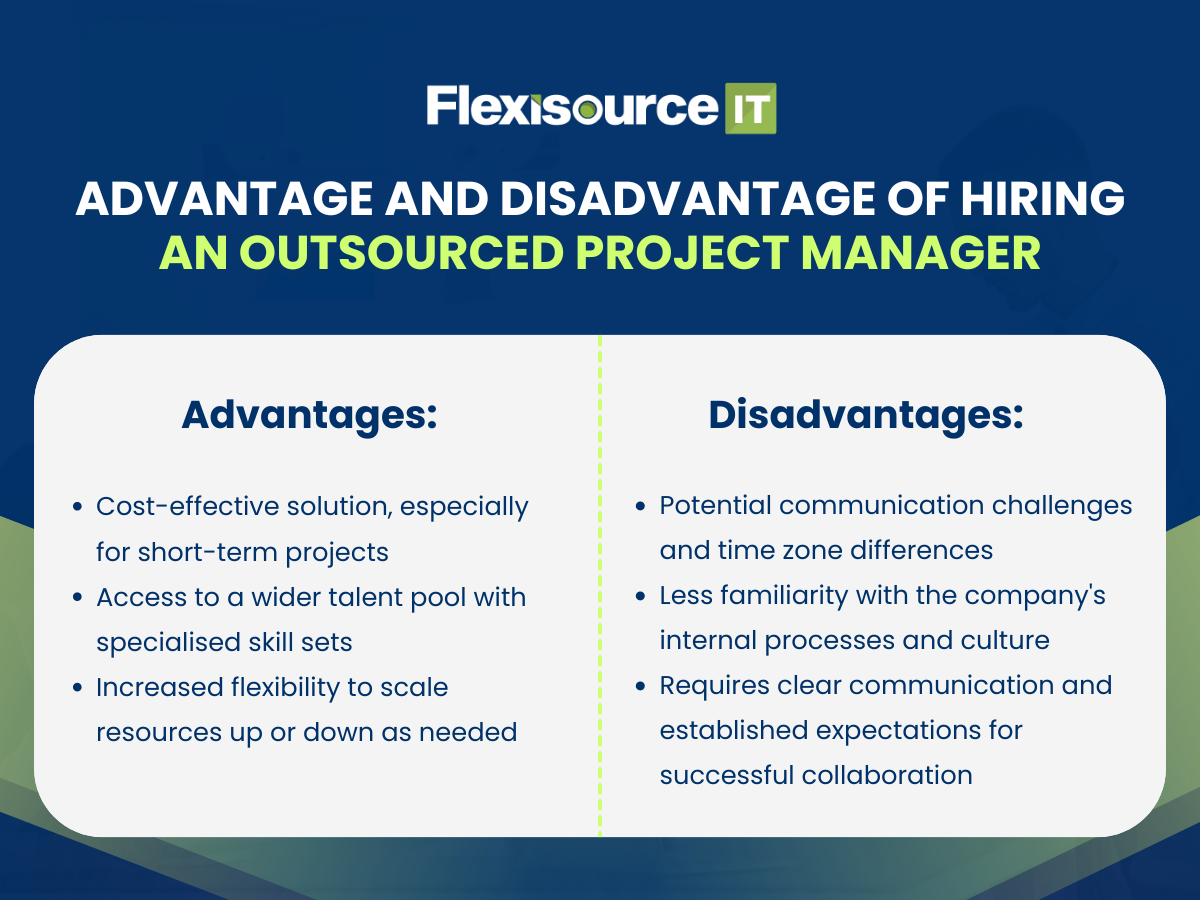The in-house vs. outsourced project manager is an important comparative necessary for organised and seamless development within a project. Not just anyone can be a project manager. You will need an organised critical thinker who is great with budgeting and time management and has the drive for leadership and collaboration.
While originally undermined, project managers are now in high demand. Businesses have now understood the necessity of seamless productivity. This resulted in a boost in outsourcing for companies that require project managers. This is especially true for countries like Australia, which have an ongoing limited talent pool within their country.
The role of a project manager involves requirements that drive the team to the goal of the project. They’re the lead negotiators and have many tasks to juggle together. As a result, many project managers have their own ways of management. Deciding the best project management approach to act as a catalyst for productivity is crucial.
As of now, there are two main types of project managers: in-house project managers and outsourced project managers.
In-house vs. Outsourced Project Manager
Before learning the pros and cons of an outsourced or in-house project manager, there’s a matter of understanding why they are the two main types. An in-house project manager refers to a project manager that operates only for their contracted business. They are regular employees whose talents are reserved solely for their employers.
Meanwhile, outsourced project managers are non-regular employees hired for a short-term contract. These project managers can have multiple contracts with other companies and are likely outsourced from a third-party company.
In-house Project Manager
In-house Project Managers collaborate more effectively with fellow employees. The benefits of in-house project managers stem from their relatability with other employees. In-house project managers are able to respond efficiently and understand the culture of the company. Even more so, in-house project managers have direct contact with in-house developers and understand the strengths and weaknesses of each one.
However, because of the demand of project managers, the regularisation of the role could prove expensive for private hiring. This means the cost of in-house project managers is higher than outsourced ones. It’s also highly likely that the skillsets of in-house project managers cater only to the companies they have had previous work with, making them slightly inflexible in terms of resources.
Another disadvantage comparable with in-house vs outsourced project managers is that in-house project managers may remain idle if no ongoing projects are being held. However, they are still eligible for regular payment and benefits.

Advantages
- Deeper understanding of culture and processes
- Stronger and seamless communication with internal teams
- More control over the project’s direction and general decisions
Disadvantages:
- Higher overall cost (salary, benefits, overhead).
- Limited skillset or experience depending on the candidate pool.
- Less flexibility in scaling project management resources.
Outsourced Project Manager
An in-house vs outsourced project manager debate is nothing without the overall downsides and benefits of both types discussed. Outsourced project managers are cost-efficient, with great connections to outsourced developers. They’re ideal for short-term projects and can adjust quickly given their experiences with being hired to manage other development teams. Outsourced project managers also give fresh ideas to the in-house development team.
However, outsourced project managers will need time to familiarise themselves with the business they’re tasked with and understand their goals before proceeding with any decision-making. They also have little involvement in the company’s development and will need time to adjust to collaborating seamlessly with in-house team members.

Advantages
- Cost-effective solution, especially for short-term projects.
- Access to a wider talent pool with specialised skill sets.
- Increased flexibility to scale resources up or down as needed.
Disadvantages
- Potential communication challenges and time zone differences.
- Less familiarity with the company’s internal processes and culture.
- Requires clear communication and established expectations for successful collaboration.
Factors to Consider When Choosing
Aside from the price differences for in-house vs outsourced project managers, both have equal benefits and downsides. It’s important to consider the size and complexity of a project. Is it something that’s long-term or short-term? How much are your project management resources? Is the cost of an in-house project manager and their availability achievable?
How about the cost of an outsourced project manager? Do you have any budget constraints? Does the project require specialised expertise on the matter? Weigh out the pros and cons of both types before deciding and understanding the needs of your projects and which one can achieve them.
Conclusion
Comparing in-house vs outsourced project managers is needed for successful IT project implementation. Both types can deliver effective results. However, outsourced project managers can be specialists and cost-efficient. Meanwhile, in-house project managers produce high-quality work and show a long-term commitment to the team.
Remember to understand your project’s goals and potential setbacks before deciding which type of project manager is more available. Need help deciding? Get a free consultation from Flexisource IT and hire the right PM for your company! Contact us now!





